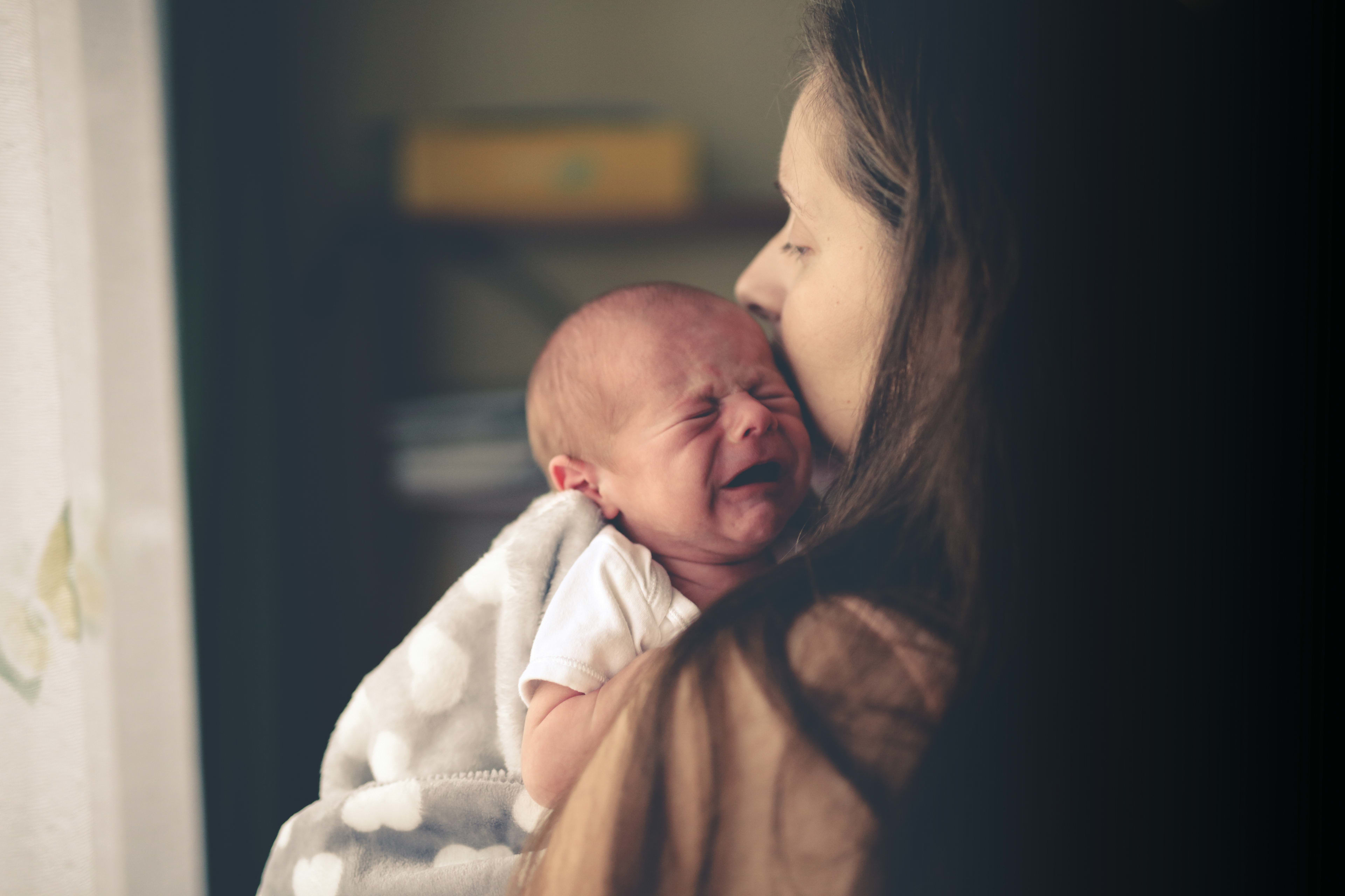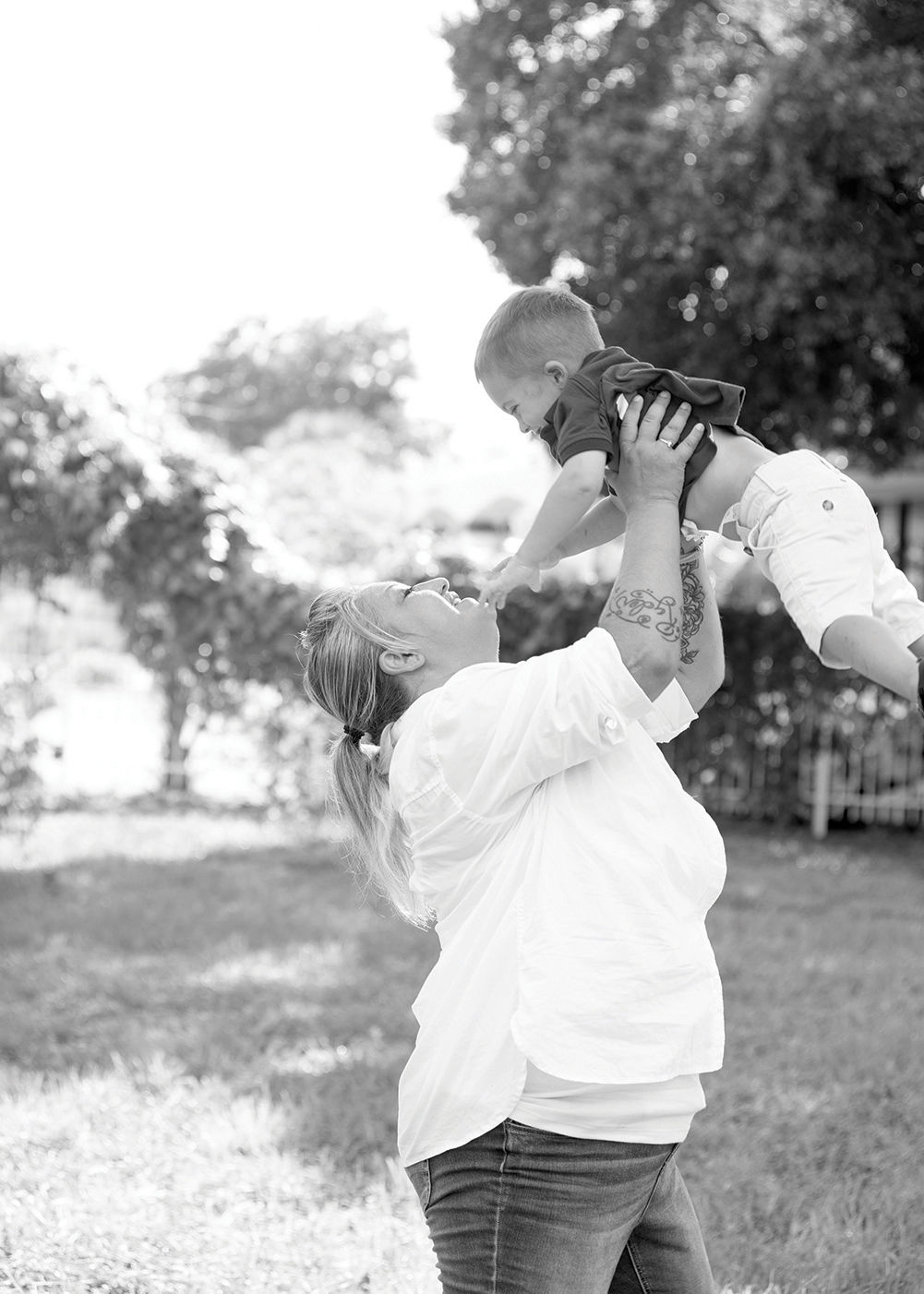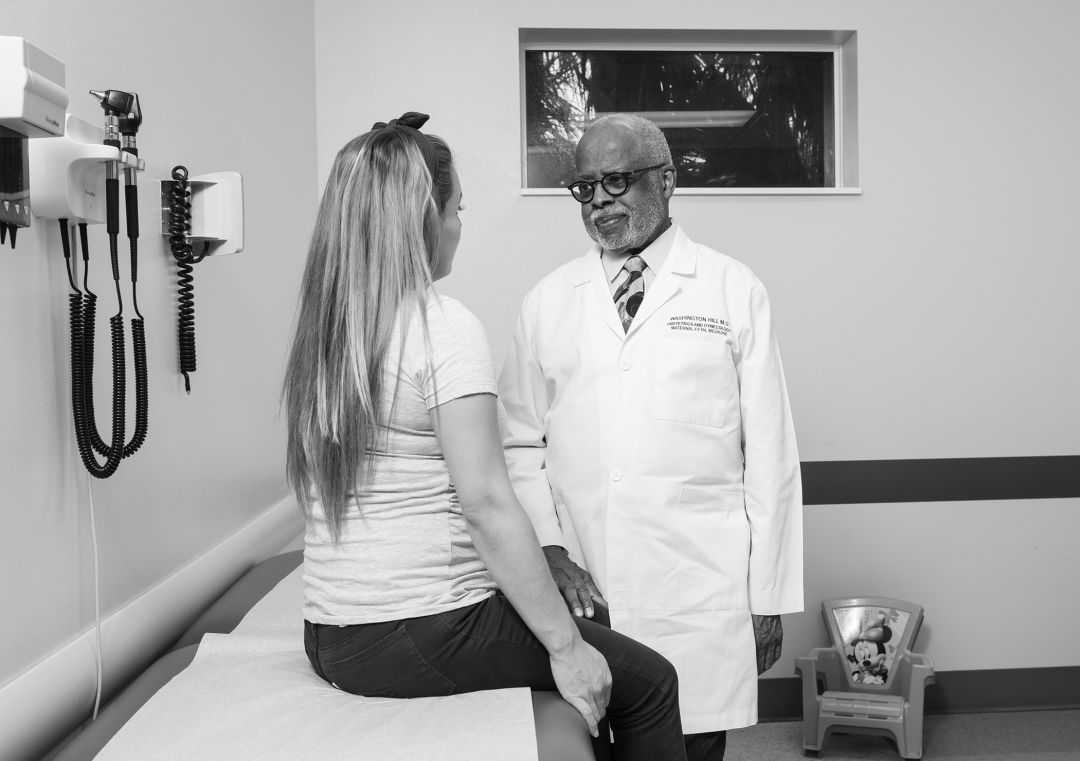
Addicted at Birth: Newborns Struggle With the Legacy of Opioids
All babies cry, but the cry of a child born with neonatal abstinence syndrome is different. High-pitched and coming in desperate waves, the cry envelops the newborn as it goes through seizures, the baby’s muscles shaking and clenching uncontrollably.
“It is a cry that screams pain,” says Katie Powers, a nurse at Mothers of Manatee Memorial, known as MOMM’s Place, an outpatient education center for families and babies at Manatee Memorial Hospital in Bradenton. The sound can be traumatic—so traumatic, Powers says, that it causes nurses at Manatee Memorial to rotate shifts more frequently when caring for multiple babies afflicted with the syndrome (commonly known as NAS). “Nurses can’t do it two days in a row,” Powers says.
The baby’s struggles are numerous. “Their oral facial muscles are not coordinated enough to transfer milk, so they’re difficult to feed,” says Powers, and their digestive systems are “a mess.” Other symptoms include diarrhea, awful diaper rashes, fevers, stuffy noses and breathing problems. NAS babies can’t be consoled, they can’t eat and they can’t sleep.
NAS occurs when a newborn experiences withdrawal from an opiate that he or she was exposed to while in the womb. Morgan Carle’s son, Ryder, was born with NAS at Johns Hopkins All Children's Hospital in St. Petersburg three years ago. Carle, now 36 and living in Sarasota, was using intravenous drugs when she found out she was pregnant. She stopped when a doctor prescribed methadone for her as a substitute, but she still used Xanax recreationally and drank on occasion. “It’s so shameful,” Carle says.
After Ryder was born, he spent a month in the hospital’s neonatal intensive care unit, where he received morphine and two blood transfusions. “It was horrible watching him in the hospital coming off of the drugs,” Carle says. “Talk about heartbreaking, to see this poor little innocent baby that had nothing to do with it, and it’s all your fault.”
Since America’s opioid epidemic began to explode two decades ago, more than 400,000 Americans have died from opioid overdoses. That makes drug overdoses the leading cause of death for people under 50 today.
The first wave of the crisis was fueled by what the federal government calls misleading marketing practices by opioid manufacturers that downplayed the risk of addiction, as well as doctors who overprescribed the medications, either knowingly or unknowingly. Overall, the epidemic costs the United States an estimated $504 billion each year—2.8 percent of the nation’s entire gross domestic product—and thousands of cities, counties, states, tribes, hospitals and other agencies, including some in Sarasota and Manatee counties, are suing opioid makers to recoup what the epidemic has cost them.
But as those lawsuits play out in distant courtrooms, stories of human suffering continue to accumulate here at home. As the number of overdoses has increased, so has the number of babies born suffering from withdrawal, the pain of addiction cascading from one generation to the next. Nationwide, the number of women giving birth while on some sort of opioid more than quadrupled between 1999 and 2014, hitting a rate of 6.5 per every 1,000 hospital deliveries. (In comparison, the rate of children born with fetal alcohol syndrome in America ranges from 0.5 to 2 per 1,000 births.) The number of NAS cases in America increased nearly fourfold between 2000 and 2012.

Morgan Carle’s son, Ryder, is experiencing developmental delays because of NAS and other factors.
Image: Barbara Banks
The problem is especially acute in Florida, where nearly 6,000 babies were born with the condition between 2014 and 2017, and Sarasota and Manatee counties have some of the state’s highest rates of NAS. In the last three years alone, Sarasota Memorial Hospital has treated 349 newborns with NAS, while Manatee Memorial has cared for another 203.
Dr. Jean Ko, an epidemiologist with the Centers for Disease Control and Prevention, says understanding why the crisis is worse in some areas than others is complicated by a lack of consistent data. Up until just this year, states were using different definitions of NAS and different codes to record instances of the syndrome.
The long-term prognosis for babies born with NAS is also unclear, Ko says. One study in Tennessee found that children born with NAS were more likely to experience developmental delays and speech or language impairment when they entered school. But children with NAS are also more likely to experience other traumas early in life and are often raised in chaotic environments by parents struggling with addiction. Singling out NAS as the sole cause of later problems isn’t easy.
“It’s important to consider other substances an infant might have been exposed to and their environment; and oftentimes, the studies and the data sources don’t have all those variables,” Ko says.
Medical practitioners have treatments to ease the syndrome. When the baby is born, morphine typically lessens NAS symptoms and the child is slowly weaned from the drug over the course of three to four weeks. But addressing NAS also starts well before birth. A mother quitting opiates cold turkey while pregnant can lead to miscarriages and fetal distress, so pregnant addicts are usually prescribed either methadone or buprenorphine, two other opioids. Those drugs alleviate the pain caused by withdrawal without delivering euphoria.
The nonprofit Operation PAR runs nine methadone clinics between Spring Hill and Fort Myers. Its Sarasota and Bradenton locations have more than 1,000 active patients. Between them, those two clinics treated 53 women who gave birth last year.
Operation PAR’s Sarasota branch on South Tamiami Trail opens at 5:30 a.m. on weekdays and 6:30 a.m. on weekends. By the time the doors are unlocked, dozens of patients have lined up outside the clinic to receive treatment before they go to work. Nearly all Operation PAR patients are taking liquid methadone every day, as well as attending counseling sessions with Operation PAR professionals.
Jon Essenburg, an Operation PAR vice president, says opiates like heroin or prescription pills provide a “rollercoaster” effect, a high followed by pain, while methadone and buprenorphine, when taken daily, create a “steady state,” during which users are more able to remain sober and even-keeled.
Carle, Ryder’s mother, first used drugs at 14, with her mother, who is now deceased. “I grew up in that environment where that was the norm,” she says. When she found out she was pregnant at age 32, she was using Dilaudid. Her doctor switched her to methadone to stabilize her and she moved to a rehab facility in Largo. Methadone helped keep Carle sober, but she says her dose still left her feeling “out of it.” She stayed on the drug for two years after giving birth, before deciding to kick it completely.
Methadone isn’t a cure-all for NAS. In roughly seven out of 10 cases, a child born to an Operation PAR patient using methadone will still spend time in an intensive care unit being weaned from opiates with morphine, which deadens the pain.
Opiate addiction includes two distinct components, Essenburg says: a physiological dependence on the substance, as well as a psychological compulsion. NAS babies are born with the physical symptoms, but have no mental fixation on drugs. That means that once they’ve been weaned in their first few weeks, they shouldn’t be any more likely than they otherwise would be to abuse drugs when they grow up. But addiction is often passed down from generation to generation through genes. Studies show that the heritability of alcohol dependence ranges from 50 to 60 percent, while the heritability of illicit drug use runs from 45 to 79 percent. Operation PAR treats whole families addicted to opiates: seniors, their children and their children’s children.
For NAS babies, “the susceptibility to opiate addiction is probably going to be there,” Essenburg says, “but it’s not a guarantee.” Dozens of variables affect how pregnancy plays out for an addicted pregnant woman, including substances besides opiates that they may abuse and how early they seek prenatal care.

Dr. Washington Hill says Sarasota health care providers have “come a long way” in caring for addicts.
Image: Barbara Banks
Dr. Washington Hill is a senior obstetrics and gynecology physician with CenterPlace Health, a nonprofit center that serves low-income communities. He says complicating health factors include obesity, sexually transmitted diseases, heart disease, poor nutrition and hepatitis C, and the women might be homeless or incarcerated. The Sarasota County jail housed 83 pregnant women last year, 12 of whom were taking either methadone or buprenorphine.
Hill first noticed an uptick in the number of addicted patients five years ago. “Many of these patients told us they were started on opiates for legitimate reasons,” Hill says. A car accident led to an injured back, which led to a prescription for pills. Years later, the women found themselves still hooked. “You hear many stories like that,” he says, “and I believe them.”
In the past, according to Hill, there was little communication between maternal physicians, Operation PAR and the many nonprofits and agencies that interact with addicted women, like Healthy Start, First Step and Planned Parenthood. Hill helped spearhead the creation of Addiction Support and Pregnancy (known as ASAP), a task force that tries to coordinate care for pregnant addicts and babies with NAS and other risky conditions. Steps as simple as inviting pregnant addicts to tour the labor and delivery and newborn intensive care units at Sarasota Memorial help put the women at ease and keep them on track, he says. The hospital also offers a support group for pregnant women struggling with addiction that brings in around six people every Wednesday.
That sort of outreach can help bridge the gap between caregivers and addicts, who often feel a crushing sense of guilt about having used drugs while pregnant. For Carle, seeing her son, Ryder, suffer from NAS was distressing enough. The shame she felt made the experience all the more painful. “The guilt is just insane,” she says.
NAS mothers also feel the sting of nurses and doctors judging them. As Ryder was being treated, Carle visited him four times every week for eight hours at a time. She says nurses made snide remarks when she struggled to change a diaper and frequently brought up her past drug use. “It took all my courage just to go there and see my own child,” Carle says.
Overcoming “implicit bias” is a major hurdle in treating pregnant addicts and mothers, says Dr. Eddy Regnier, a clinical psychologist. Americans are inundated with ugly portrayals of racial and ethnic groups and poor people, images that affect how we perceive others, whether we’re conscious of it or not. Meanwhile, minorities often hear stories from their parents and grandparents about how the medical establishment mistreated them in the past, which instills a fear and mistrust of doctors and nurses. Addicted women are also often victims of abuse at the hands of men. When they seek care, they must turn to a doctor, who is still more likely to be male than not.
“Implicit bias is all that negative stuff playing in the background, and you’re not even aware of it,” Regnier says. The medical establishment has done a poor job of teaching nurses and doctors about bias and how to combat it. “The only way to change the outcome is to engage doctors to discuss their feelings,” he says.
Addiction is also too often seen as a personal choice, rather than as a physiological condition that requires treatment. “If someone has a fever, we don’t talk about their morality,” Regnier says.
Powers, the Manatee Memorial nurse, says it takes a long time to convince NAS moms that she and other nurses aren’t looking down at them. “Judging you is not in my job description,” she tells them. “Our job is to care for you and care for your baby.”
According to Hill, increased collaboration within the health care, addiction treatment and criminal justice worlds is making a difference. “I don’t think there’s any question we’re heading in the right direction,” Hill says. In 2016, 4 percent of babies born at Manatee Memorial and 3.7 percent of babies born at Sarasota Memorial suffered from NAS. Last year, those numbers dipped to 3.1 percent at both hospitals. The tide appears to be turning. Slowly.
Carle’s son, Ryder, is now 3. He is experiencing developmental speech delays and suffers from gastroparesis, a stomach condition that makes it difficult to eat. After leaving the neonatal intensive care unit at All Children’s, he was placed in a foster home, while Carle worked through a Department of Children and Families case plan. She was eventually reunited with him, but relapsed last year and was arrested for battery against a friend. “Addiction is a horrible, horrible thing,” Carle says. “It destroys families.” Sentenced to probation, she regained custody of Ryder from a foster home this May.
Ryder now attends a specialized daycare and receives in-home visits from therapists at The Florida Center for Early Childhood. According to Carle, Ryder may eventually catch up developmentally with other kids, but there’s no crystal-clear prognosis. He’s talkative, outgoing and fun. “He’s a joy to be around,” Carle says. Carle, meanwhile, rides the bus to work at Lucky’s Market and attends 12-step meetings.
“There have been some times when I wanted to use,” she says, “but I don’t want to lose Ryder ever again, so that just can’t happen.”